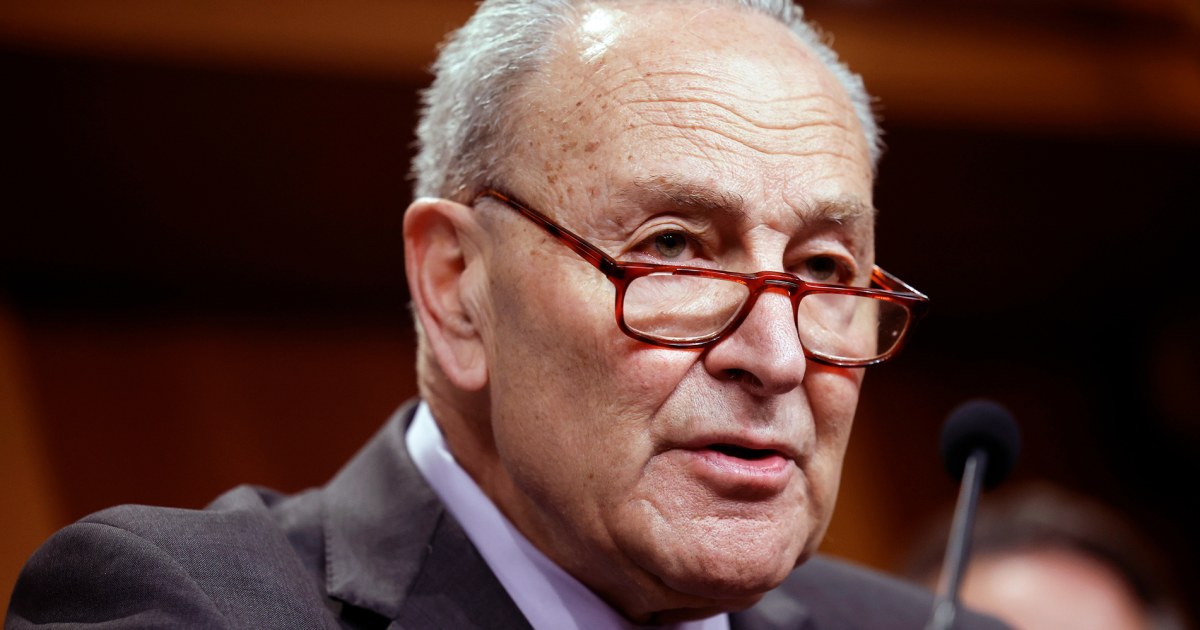Schumer's Leadership Under Scrutiny from Within the Democratic Party: A Growing Unease?
Introduction: Senate Majority Leader Chuck Schumer's position is facing increasing pressure from within his own party. While he's successfully navigated several legislative hurdles, recent setbacks and internal disagreements are raising questions about his leadership style and effectiveness. This article delves into the criticisms, analyzes their impact, and explores the potential consequences for the Democratic Party heading into crucial elections.
Rising Dissatisfaction Within Democratic Ranks
The honeymoon period seems to be over for Senator Schumer. While he successfully steered the Inflation Reduction Act and the Bipartisan Infrastructure Law through Congress, a growing number of Democrats are expressing concerns. These concerns aren't solely about legislative failures; they also encompass his management style and his ability to unite the diverse factions within the party.
Key Criticisms of Schumer's Leadership:
- Lack of Internal Consensus Building: Critics argue that Schumer prioritizes speed over consensus, leading to rushed legislation and leaving some Democrats feeling sidelined. This approach, while effective in certain situations, has reportedly alienated moderate and progressive wings of the party.
- Communication Gaps: Concerns have been raised about a lack of transparency and consistent communication between Schumer and his caucus. This has reportedly led to frustration and a sense of being left in the dark about crucial legislative strategies.
- Handling of Internal Disputes: The party's internal divisions, particularly on issues like climate change and social spending, have exposed challenges in Schumer's ability to mediate and find common ground. Some argue his leadership has exacerbated these divisions rather than bridging them.
- Legislative Setbacks: While significant legislative wins exist, some high-profile legislative failures have fueled criticism. These perceived failures, coupled with the aforementioned internal issues, have contributed to the rising discontent.
The Impact on Democratic Prospects
The internal friction within the Democratic party poses a significant risk to their electoral prospects. A divided party is a weaker party, and the challenges to Schumer's leadership could have far-reaching consequences:
- Weakened Campaign Messaging: Internal disputes can lead to a lack of cohesive messaging, making it difficult to articulate a clear and compelling vision to voters.
- Reduced Voter Enthusiasm: Internal conflict can demoralize voters and decrease turnout, potentially impacting election outcomes.
- Vulnerability to Republican Attacks: A fractured Democratic party provides fertile ground for Republican attacks, potentially undermining their chances in key races.
The Path Forward for the Democratic Party
The challenges facing Senator Schumer and the Democratic Party are significant but not insurmountable. Addressing the concerns requires a multi-pronged approach:
- Improved Communication and Transparency: Open and consistent communication between Schumer and the caucus is crucial to foster trust and build consensus.
- Enhanced Internal Dialogue and Compromise: A greater emphasis on internal dialogue, negotiation, and compromise is necessary to bridge the ideological divides within the party.
- Focus on Shared Goals: Highlighting common goals and priorities can help unite the party and create a shared sense of purpose.
Conclusion: A Critical Juncture for the Democrats
The scrutiny of Senator Schumer's leadership represents a critical juncture for the Democratic Party. Addressing the concerns raised will require proactive steps to improve internal cohesion and communication. Failure to do so could have significant repercussions, impacting the party's ability to effectively govern and win future elections. The coming months will be crucial in determining whether the party can overcome these challenges and present a unified front to the electorate.
Keywords: Chuck Schumer, Senate Majority Leader, Democratic Party, political leadership, internal conflict, legislative success, legislative failures, election prospects, political strategy, party unity, internal divisions, political analysis, US Senate, American politics.
(Note: This article provides an overview and does not endorse any specific viewpoint. Further research and analysis are encouraged.)
